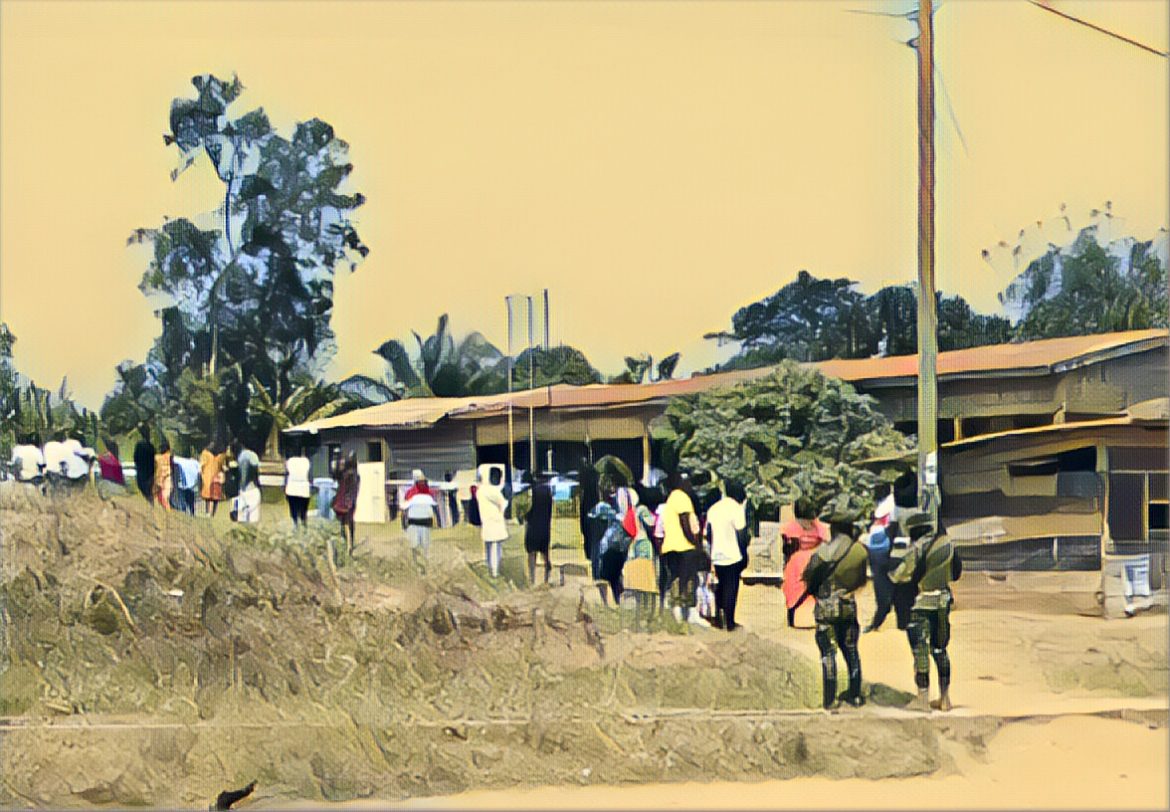Ghana’s opposition party, the National Democratic Congress (NDC), has expressed deep concern over the reported deployment of military officials in the ongoing District Assembly Elections within the Akorabo Electoral area.
According to party officials, the actions and demeanor of these purported military officials, allegedly deployed by the Municipal Chief Executive (MCE), Margret Darko are causing apprehension and are perceived as attempts to intimidate voters, particularly in NDC strongholds. Dove Maxwell, the Suhum Communication Officer for the NDC, issued a statement conveying the party’s discontent with what they describe as unpleasant and, in their view, barbaric actions, which they believe are orchestrated from higher authorities.
The NDC issued a stern caution to the MCE and any government officials allegedly associated with the reported acts of harassment against NDC members in the mentioned electoral areas.
According to a report by Ghana Web,the party demanded for an immediate cessation of such actions or warned of reciprocal measures.
Only 12 out of 29 electoral areas in Suhum took part in this District level election. The MCE has not responded to phone calls for reaction. In the Eastern region voting took place in 13 out of 33 Districts and Municipalities due to what the Electoral Commission describes as a technical challenge. The EC has meanwhile rescheduled voting in the affected areas to December 21, 2023.
A Threat to Democracy?
The District Assembly Elections are meant to elect representatives to the 260 District Assemblies of Ghana, which are the lowest level of the country’s local government structure. The elections are held every four years and are supposed to be non-partisan and inclusive.
However, the NDC alleges that the ruling party, the New Patriotic Party (NPP), is using the military to interfere with the electoral process and influence the outcome in its favor. The NDC claims that this is a threat to democracy and the rule of law in Ghana, which has been hailed as a model of stability and peaceful transitions in Africa.
The NPP has denied the allegations and accused the NDC of fabricating stories to discredit the elections and incite violence. The NPP says that the military is only deployed to maintain law and order and prevent any disturbances that may arise during the voting.
The Electoral Commission has also dismissed the claims of military intimidation and assured the public that the elections are free and fair. The Commission says that it has put in place adequate measures to ensure the security and safety of voters and electoral materials.
The Way Forward
The District Assembly Elections are seen as an important avenue for grassroots participation and development in Ghana. They are also a precursor to the general elections scheduled for 2024, which are expected to be highly competitive and contentious.
The NDC and the NPP are the two main political parties in Ghana, and they have alternated power since the return to multiparty democracy in 1992. The current president, Nana Akufo-Addo of the NPP, won the 2020 election by a narrow margin against his predecessor, John Mahama of the NDC, who contested the results in court but lost.
The NDC has vowed to reclaim power in 2024 and has accused the NPP of mismanaging the economy, failing to fight corruption, and violating human rights. The NPP has defended its record and accused the NDC of being incompetent, corrupt, and divisive.
As the political temperature rises, many observers and stakeholders have called for calm and dialogue among the parties and their supporters. They have also urged the Electoral Commission to be transparent and impartial in conducting the elections and resolving any disputes that may arise.
They have also appealed to the security agencies to be professional and neutral in maintaining peace and order. They have stressed the need for all Ghanaians to respect the electoral laws and the democratic principles that have guided the country for decades.
They have expressed hope that Ghana will continue to uphold its reputation as a beacon of democracy and development in Africa and the world.




